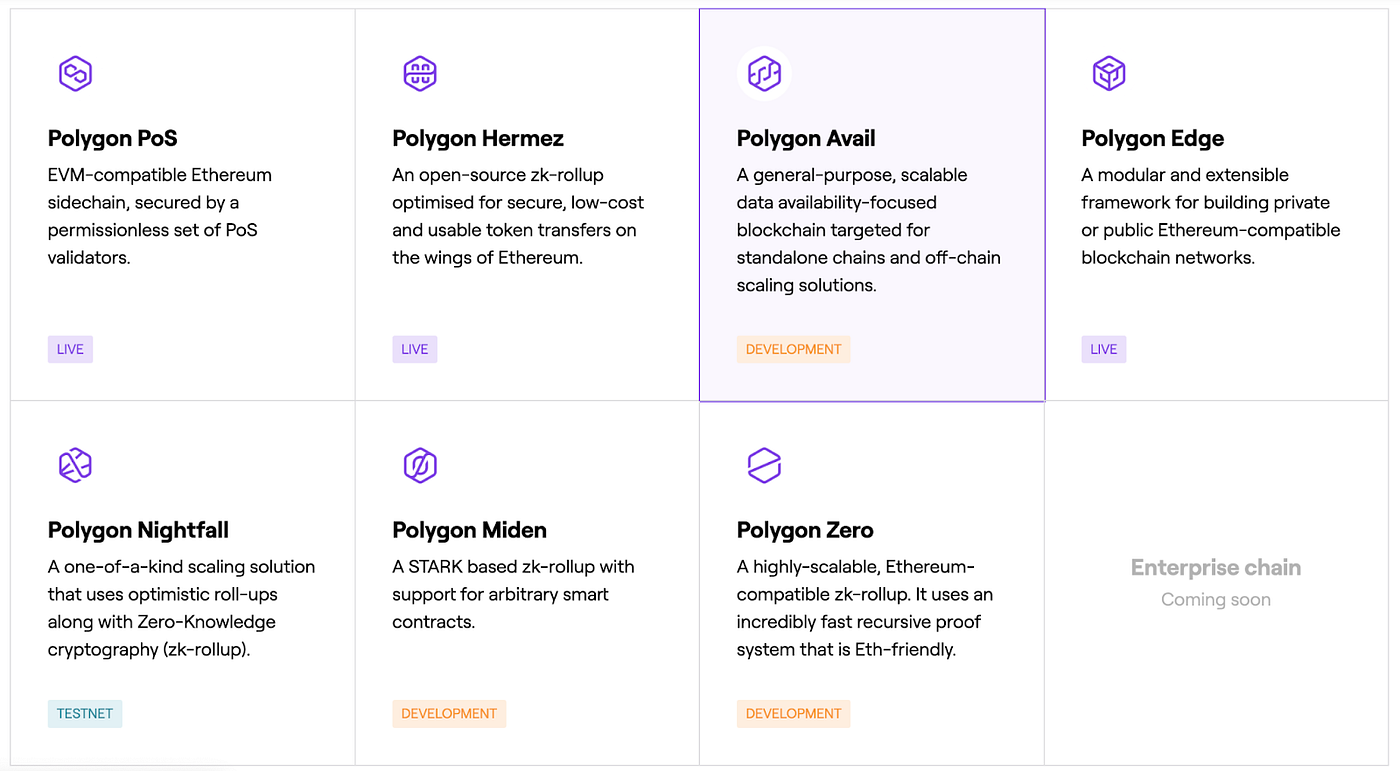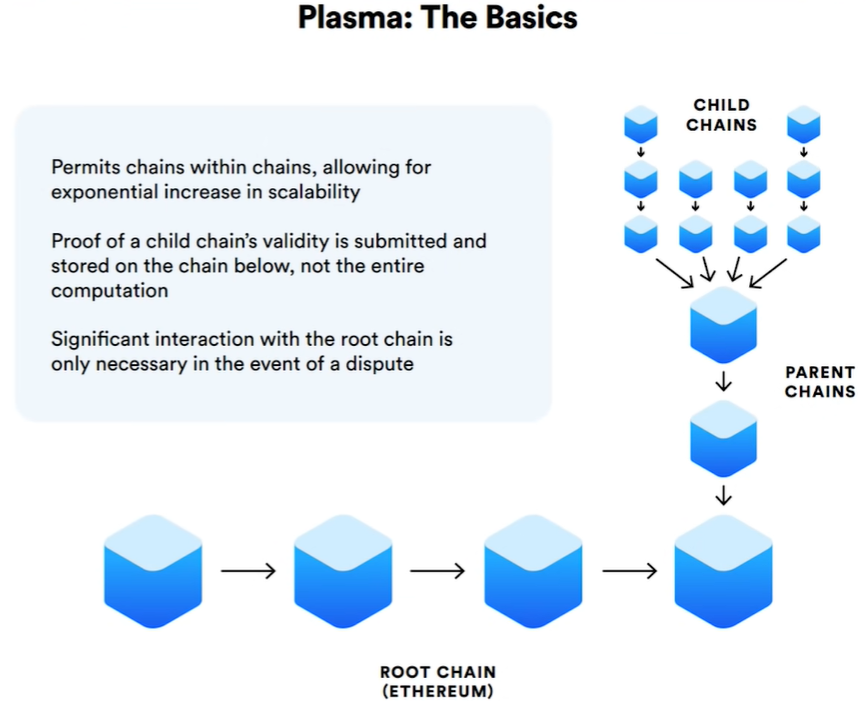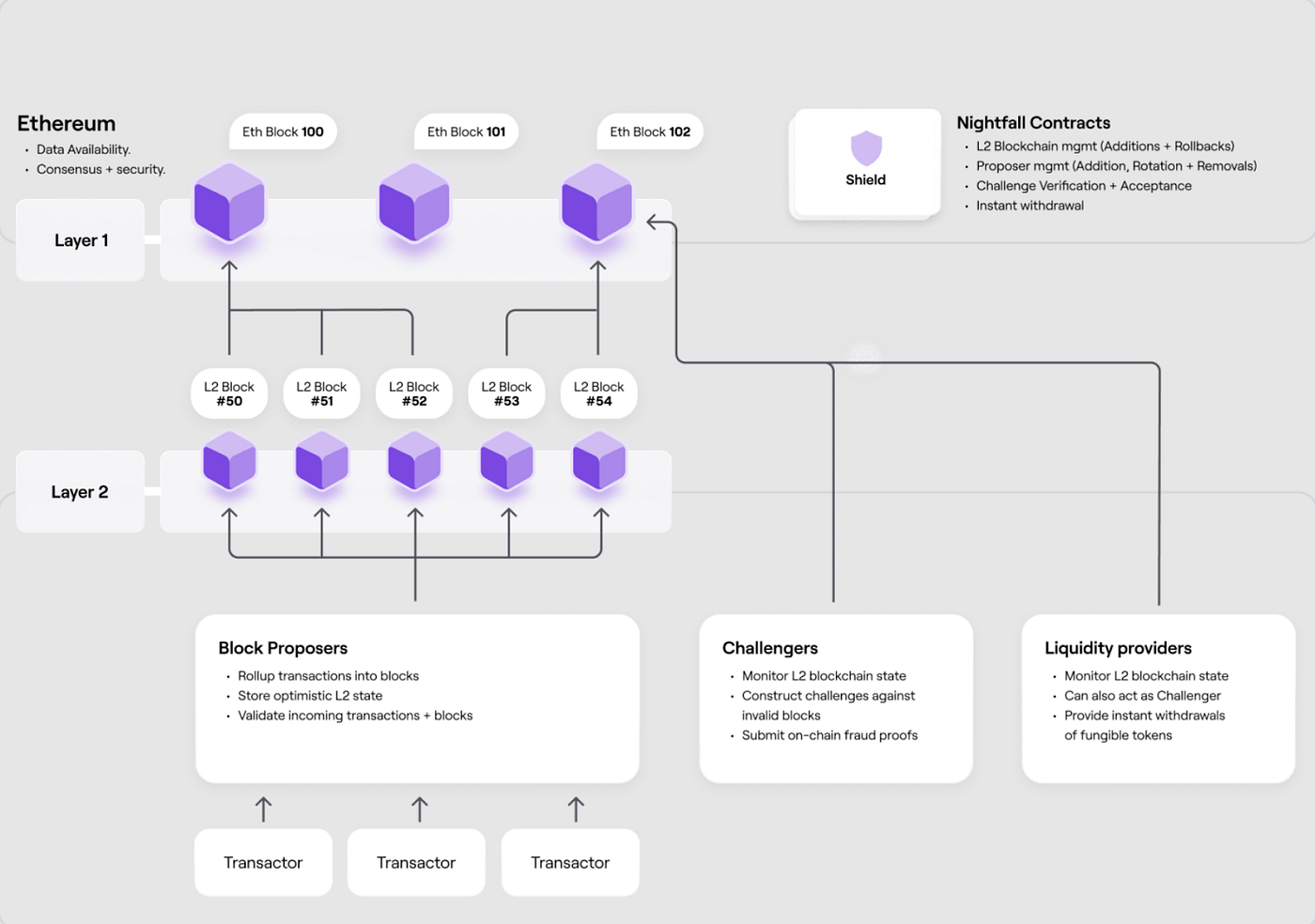Polygon is a decentralised Ethereum scaling platform that enables developers to build scalable, secure dApps with low transaction fees.
This article was written for Everstake, a major staking validator for several tokens including Polygon’s native token, MATIC.
Client: Everstake
Website: polygon.technology,
everstake.one
Token: MATIC
This article was written for Everstake, a major staking validator for several tokens including Polygon’s native token, MATIC.
Client: Everstake
Website: polygon.technology,
everstake.one
Token: MATIC
Link to original article online: https://medium.com/everstake/polygon-matic-network-overview-scaling-the-ethereum-blockchain-6b8986027236
Sometimes links get changed, which is out of our control, so here’s a PFD download of the article, as well as a text version below.
Ethereum gas fees remain relatively high, and so does the demand for Ethereum Layer 2 scaling solutions like Polygon. Founded in 2017 by two experienced blockchain developers and a business consultant under the brand name Matic, Polygon is a highly secure, decentralized Ethereum scaling platform that allows blockchain developers to create scalable dApps with low transaction fees. Mihalio Bijalic, an experienced Ethereum developer, was added as a fourth co-founder after the organization was rebranded to Polygon in 2021, and they have raised millions of dollars for the development of their network from many well-known institutions.
![]()
Polygon’s mission is to be Ethereum’s internet of blockchains, and they aim to do this through a number of innovative scaling solutions — three of which are currently live (Polygon PoS (also known as Matic Network), Polygon Hermez, and Polygon Edge). Although the Polygon mainnet went live in June 2020, the network is technically still in development with many scaling solutions and integrations on the horizon.

Source: https://polygon.technology/
Polygon’s most popular scaling solution — Polygon PoS Chain — uses Plasma, which is an Ethereum scaling technology that makes a copy of the Ethereum blockchain and leverages its security. Snapshots of Polygon PoS Chain are periodically submitted to the Ethereum blockchain by Polygon’s validators, and if Polygon PoS Chain ever goes down, these snapshots can be used to recover users’ funds. Additionally, validators do not process transactions on PoS Chain, as this is done by the network’s block producers with a processing capability of up to 10,000 transactions per second.

Source: https://medium.com/general_knowledge/polygon-matic-could-it-win-the-eth-scaling-race-2c8b4e9baf51
The MATIC token is an ERC-20 token on the Ethereum network and is the native token of Polygon. The token enables users to interact with dApps in the Polygon ecosystem, and it can be used for staking by validators on the PoS chain. It is also possible to delegate your MATIC stake to a validator, such as Everstake, and earn rewards. We cover this process in our MATIC staking guide.
In just the past year alone, Polygon’s market cap has grown from approximately $31 million to over $12 billion at the time of writing. In addition, Polygon has:
Polygon also aims to be carbon negative in 2022.
Polygon recently secured a $450 million investment to scale Ethereum even further and build out a complete suite of scaling solutions. Polygon’s scaling solutions include the popular Hermez, Polygon PoS (also known as Matic Network), and others that we’ll cover in more detail below.
In addition to wallet integrations (such as MetaMask, Coinbase Wallet, and WalletConnect), Venly and Bitski now include support the MATIC token, and Polygon has therefore added direct support for these wallets through the Polygon Wallet App.

We cover how to delegate/stake your MATIC tokens with the Bitski Wallet in our easy-to-follow staking guide. When you delegate your stake to Everstake, you stake with one of the top validators in the world with well over 425,000+ delegators and $4+ billion in staked assets — so you know with confidence that your assets are safe and that your payouts will arrive on time.
Another significant feature for Polygon and the Ethereum ecosystem as a whole is the deployment of Uniswap to Polygon. Uniswap is the #1 Ethereum app with over 80% of all DeFi users, and the integration of Polygon means that users are no longer limited by the high gas fees.

Source: https://app.uniswap.org/#/swap
To trade tokens on the Polygon network through Uniswap, you can start by using the convenient Polygon Bridge to bridge assets from Ethereum over to Polygon. Then, once you make your trades, you can use Polyscan to view and track all your transactions.

The deployment of Uniswap on Polygon has already exponentially grown the Polygon ecosystem in terms of total value locked (TVL) (currently $4.4+ billion), the number of users/wallets (currently 140M+), and the number of transactions.
When it comes to Web 3.0 and crypto adoption, Polygon’s integration with the Opera browser is another prime example of the decentralized web taking shape. Opera has millions of users who will be able to use dApps in the Polygon ecosystem directly from their browser and to benefit from the low gas fees and faster transactions while still leveraging the security of Ethereum.
Polygon has a two-way bridge that allows users to move funds between Ethereum and Polygon easily, and the platform supports a number of standards including ETH, ERC-20, ERC-721, and ERC-1155. Polygon recently introduced the PoS Bridge Explorer, which makes viewing and tracking transactions between the Polygon PoS network and the Ethereum mainnet user-friendly. The tool is similar to Polyscan and Etherscan in that you can view information at the bridge level including deposits (from Ethereum), withdrawals (back to Polygon), and transaction details.

The Polygon ID is a blockchain-based decentralized ID for the future of Web 3.0. It uses zero-knowledge (ZK) proofs, a privacy and blockchain scaling technology that will allow the platform to power a number of privacy-based use cases, including private on-chain verification for Web 3.0 protocols.

Having already reached the testnet stage, Polygon Nightfall is a scaling solution that powers private and cost-effective transactions on the Ethereum network. Nightfall does this by combining Zero-Knowledge (ZK) technology and ZK-Optimistic Rollup to both increase privacy and reduce ERC-based token transfer fees by well over 80%. The solution allows for the transfer of ERC-20, ERC-721 and ERC-1155 tokens, and users have full control and ownership of their assets.

EIP-1559, also known as the London Hard Fork, was one of the biggest upgrades ever implemented on the Ethereum mainnet. The upgrade made the way Ethereum calculates network transaction fees more efficient, and Polygon implemented the upgrade after a successful testnet.
As with EIP-1559 on Ethereum, the upgrade on Polygon does not make transaction fees cheaper, but it does allow users to estimate costs better because there’s a minimum base fee for inclusion in the next block.
The demand for Ethereum Layer 2 scaling solutions like Polygon is expected to increase exponentially. This is largely because when Ethereum moves to Proof-of-Stake, the merge itself will likely have little effect on scalability, and this will likely increase the demand for ETH, too. Polygon is perfectly positioned to profit from such increase in activity, and when you add this to the fact that its team also focuses on building a number of world-class scaling solutions, they seem poised to remain at the cutting edge of the blockchain space.
Sometimes links get changed, which is out of our control, so here’s a PFD download of the article, as well as a text version below.
Polygon Overview: Scaling the Ethereum Blockchain
Ethereum gas fees remain relatively high, and so does the demand for Ethereum Layer 2 scaling solutions like Polygon. Founded in 2017 by two experienced blockchain developers and a business consultant under the brand name Matic, Polygon is a highly secure, decentralized Ethereum scaling platform that allows blockchain developers to create scalable dApps with low transaction fees. Mihalio Bijalic, an experienced Ethereum developer, was added as a fourth co-founder after the organization was rebranded to Polygon in 2021, and they have raised millions of dollars for the development of their network from many well-known institutions.

Polygon’s mission is to be Ethereum’s internet of blockchains, and they aim to do this through a number of innovative scaling solutions — three of which are currently live (Polygon PoS (also known as Matic Network), Polygon Hermez, and Polygon Edge). Although the Polygon mainnet went live in June 2020, the network is technically still in development with many scaling solutions and integrations on the horizon.
Source: https://polygon.technology/
Polygon’s most popular scaling solution — Polygon PoS Chain — uses Plasma, which is an Ethereum scaling technology that makes a copy of the Ethereum blockchain and leverages its security. Snapshots of Polygon PoS Chain are periodically submitted to the Ethereum blockchain by Polygon’s validators, and if Polygon PoS Chain ever goes down, these snapshots can be used to recover users’ funds. Additionally, validators do not process transactions on PoS Chain, as this is done by the network’s block producers with a processing capability of up to 10,000 transactions per second.
Source: https://medium.com/general_knowledge/polygon-matic-could-it-win-the-eth-scaling-race-2c8b4e9baf51
The MATIC Token
The MATIC token is an ERC-20 token on the Ethereum network and is the native token of Polygon. The token enables users to interact with dApps in the Polygon ecosystem, and it can be used for staking by validators on the PoS chain. It is also possible to delegate your MATIC stake to a validator, such as Everstake, and earn rewards. We cover this process in our MATIC staking guide.
Polygon Key Facts and Figures
In just the past year alone, Polygon’s market cap has grown from approximately $31 million to over $12 billion at the time of writing. In addition, Polygon has:
- 13K+ delegators on PoS,
- 3.4 billion total transactions,
- $140 million avg. daily gas saved,
- 135+ million unique addresses,
- 2 billion total Matic staked,
- 100 active validators, including Everstake, and
- over 7000+ dApps that have used the Polygon solution to scale their performance.
Polygon also aims to be carbon negative in 2022.
Polygon recently secured a $450 million investment to scale Ethereum even further and build out a complete suite of scaling solutions. Polygon’s scaling solutions include the popular Hermez, Polygon PoS (also known as Matic Network), and others that we’ll cover in more detail below.
Polygon Features & Integrations
In addition to wallet integrations (such as MetaMask, Coinbase Wallet, and WalletConnect), Venly and Bitski now include support the MATIC token, and Polygon has therefore added direct support for these wallets through the Polygon Wallet App.
We cover how to delegate/stake your MATIC tokens with the Bitski Wallet in our easy-to-follow staking guide. When you delegate your stake to Everstake, you stake with one of the top validators in the world with well over 425,000+ delegators and $4+ billion in staked assets — so you know with confidence that your assets are safe and that your payouts will arrive on time.
Another significant feature for Polygon and the Ethereum ecosystem as a whole is the deployment of Uniswap to Polygon. Uniswap is the #1 Ethereum app with over 80% of all DeFi users, and the integration of Polygon means that users are no longer limited by the high gas fees.
Source: https://app.uniswap.org/#/swap
To trade tokens on the Polygon network through Uniswap, you can start by using the convenient Polygon Bridge to bridge assets from Ethereum over to Polygon. Then, once you make your trades, you can use Polyscan to view and track all your transactions.
The deployment of Uniswap on Polygon has already exponentially grown the Polygon ecosystem in terms of total value locked (TVL) (currently $4.4+ billion), the number of users/wallets (currently 140M+), and the number of transactions.
When it comes to Web 3.0 and crypto adoption, Polygon’s integration with the Opera browser is another prime example of the decentralized web taking shape. Opera has millions of users who will be able to use dApps in the Polygon ecosystem directly from their browser and to benefit from the low gas fees and faster transactions while still leveraging the security of Ethereum.
Polygon Bridge Explorer
Polygon has a two-way bridge that allows users to move funds between Ethereum and Polygon easily, and the platform supports a number of standards including ETH, ERC-20, ERC-721, and ERC-1155. Polygon recently introduced the PoS Bridge Explorer, which makes viewing and tracking transactions between the Polygon PoS network and the Ethereum mainnet user-friendly. The tool is similar to Polyscan and Etherscan in that you can view information at the bridge level including deposits (from Ethereum), withdrawals (back to Polygon), and transaction details.
Polygon’s Zero Knowledge ID for Web 3.0
The Polygon ID is a blockchain-based decentralized ID for the future of Web 3.0. It uses zero-knowledge (ZK) proofs, a privacy and blockchain scaling technology that will allow the platform to power a number of privacy-based use cases, including private on-chain verification for Web 3.0 protocols.
ZK-Proof Protocol: Polygon Nightfall
Having already reached the testnet stage, Polygon Nightfall is a scaling solution that powers private and cost-effective transactions on the Ethereum network. Nightfall does this by combining Zero-Knowledge (ZK) technology and ZK-Optimistic Rollup to both increase privacy and reduce ERC-based token transfer fees by well over 80%. The solution allows for the transfer of ERC-20, ERC-721 and ERC-1155 tokens, and users have full control and ownership of their assets.
Polygon’s Integration of EIP-1559
EIP-1559, also known as the London Hard Fork, was one of the biggest upgrades ever implemented on the Ethereum mainnet. The upgrade made the way Ethereum calculates network transaction fees more efficient, and Polygon implemented the upgrade after a successful testnet.
As with EIP-1559 on Ethereum, the upgrade on Polygon does not make transaction fees cheaper, but it does allow users to estimate costs better because there’s a minimum base fee for inclusion in the next block.
More Demand for Polygon
The demand for Ethereum Layer 2 scaling solutions like Polygon is expected to increase exponentially. This is largely because when Ethereum moves to Proof-of-Stake, the merge itself will likely have little effect on scalability, and this will likely increase the demand for ETH, too. Polygon is perfectly positioned to profit from such increase in activity, and when you add this to the fact that its team also focuses on building a number of world-class scaling solutions, they seem poised to remain at the cutting edge of the blockchain space.